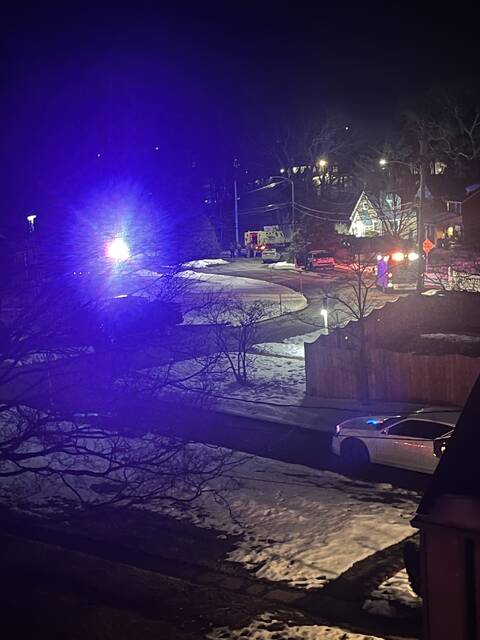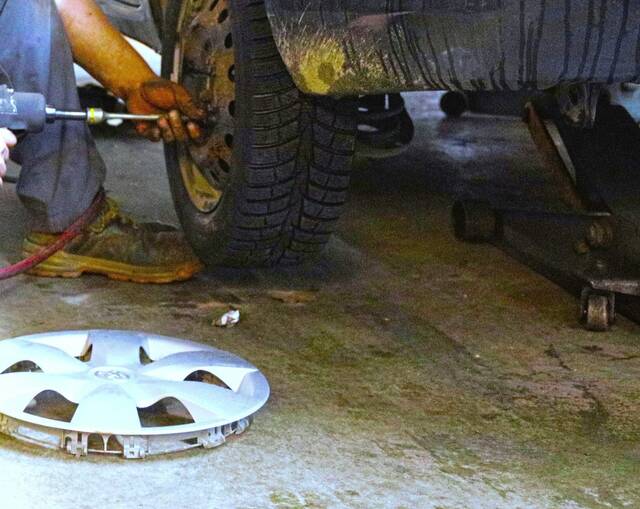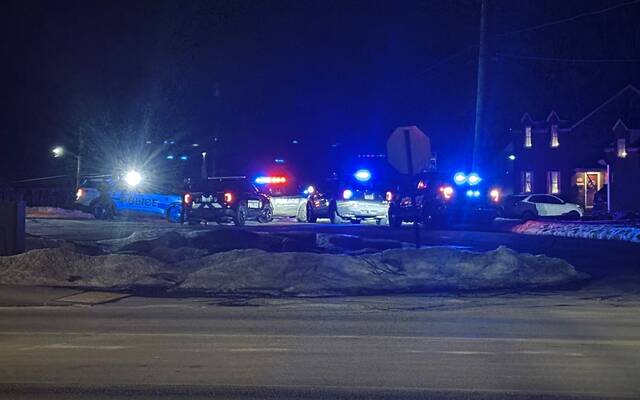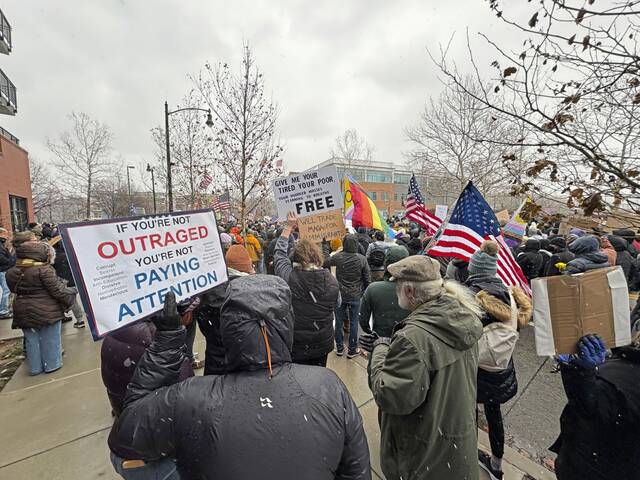A ruling on whether the former Cheswick Generating Station in Springdale can be demolished via implosion could come as early as the first week of December.
Allegheny County Common Pleas Judge John T. McVay Jr., who is presiding over a court case seeking an injunction to stop the implosion, gave both sides until Dec. 1 to file briefs in the case. He indicated he may make his ruling afterward.
Testimony in the case wrapped up on Wednesday, but attorneys representing the demolition contractor filed a motion to essentially have the case thrown out.
They say the 16 Springdale residents seeking to halt the implosion of the boiler house failed to meet requirements for the injunction to be granted.
Julie Brennan, an attorney representing contractor Grant Mackay Demolition Co., filed a motion to dissolve the temporary injunction, which has been in place since mid-September. The company also requested a hearing to determine the damages suffered by the defendants since the injunction was issued.
Residents filed a motion Sept. 15 to stop the demolition of the boiler house, alleging the June 2 implosion of the former power plant’s smokestacks caused harm to themselves, their properties and the community. An implosion of the boiler house would cause additional harm to the community, they claim.
On Thursday, the state Department of Environmental Protection lodged a $39,100 civil penalty against Cheswick Plant Environmental Redevelopment Group, Controlled Demolition Inc. and Grant Mackay, saying the June 2 implosion violated the state’s Solid Waste Management Act.
The boiler house was scheduled to be imploded Sept. 22 but was postponed because of the ongoing litigation.
But Brennan wrote in her motion that the plaintiffs have failed to demonstrate that the injunction was necessary.
“At best, the plaintiffs have asserted property damages for which money damages will adequately compensate for the alleged harm,” the filing said.
Evidence presented in court showed the boiler house has been structurally weakened in preparation for the implosion and, given its current condition, continuing with the injunction has the potential for greater injury to life and property, according to the filing. The filing added that evidence in court showed that implosion is the safest method of demolition.
Evidence also shows that a “Pittsburgh winter,” or high winds, “could cause the structure to collapse in an unplanned or uncontrolled manner,” the filing said. It said an implosion of the boiler house presents no greater risk to the community than a mechanical demolition, if it was possible to mechanically demolish the boiler house.
“Although dust will be generated as a result of the implosion, the testimony in the case has demonstrated that the direction in which any dust will travel depends upon the weather conditions at the time of an implosion,” the filing said. “In addition, the testimony has demonstrated that dust would also be generated if the structure could be felled by mechanical demolition.”
According to the filing, the plaintiffs also aren’t likely to prevail on the merits of their case. Evidence, the filing said, has established that the public nuisance was the coal-fired power plant, which emitted metals flagged as hazardous by the federal Resource Recovery and Conservation Act during its decades of operation. Charah Solutions, a defendant in the injunction and the former plant’s property owner, is remediating the site.
The filing also states there has been “extensive asbestos remediation at the property.” Even if the judge believes asbestos could remain in gaskets within the boiler house’s piping, the potential that asbestos remains in the boiler house “is an insufficient basis to find a public nuisance.”
The implosion of the boiler house will be different than the implosion of the chimneys, the filing said.
“The structure is different, the proximity to third-party properties is a greater distance, and the dust mitigation and control efforts will be more robust with industry best practices,” the filing said.
The plaintiffs have focused “almost entirely” upon the chimney implosion throughout the course of the proceedings, the filing states.
“The chimneys are structurally different from the boiler house, and the air blast that occurred when the taller 750-foot chimney was felled cannot repeat with the implosion of the boiler house,” the filing said.
Brennan also argued the preliminary injunction will adversely affect public interest.
Attorneys representing Charah also made an oral motion to dissolve the injunction Wednesday. Attorney Dave Raphael told McVay there is nothing in the record that supports a pull-down of the boiler house being safe, adding that the plaintiffs’ expert witnesses acknowledged they did not consider workers’ safety while drafting their opinion.
John Kane, an attorney representing the plaintiffs, said his firm wasn’t surprised the defense filed the motion to dissolve. He said his office is working on filing its brief and is hopeful McVay will rule in their favor.
“We’re hopeful the judge will protect the residents of Springdale,” Kane said.








